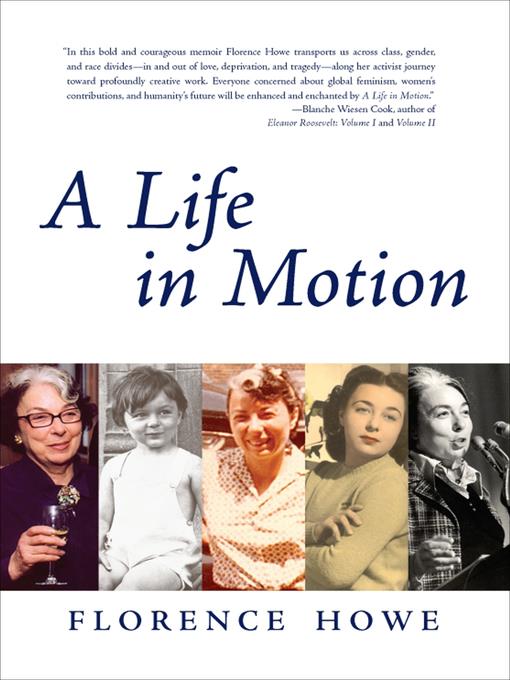
A Life in Motion
- اطلاعات
- نقد و بررسی
- دیدگاه کاربران
نقد و بررسی

February 7, 2011
The founder of the Feminist Press offers a bifurcated account of her accomplished life. There's her personal life: growing up in a working-class family in Brooklyn in the 1930s, her marriages; her thwarted desire for children and laborious building of a family of close friends, adopted teenage black daughter, and stepsons. Then there's her professional life: teaching, civil rights and antiwar activism, development of women's studies, and her most important project, the Feminist Press, started 40 years ago. Her private and professional lives sometimes intersect, especially in her chapter "Becoming a Feminist," but usually she deals with these parts of her life separately. Howe is most enlightening in describing her childhood, with a mother who doted on her son but often treated Howe harshly (perhaps to teach her how hard a woman's life is). Yet after her mother's death, Howe finds that her mother had kept every piece of paper reflecting Howe's achievements. Howe is most comfortable writing about her work with the Feminist Press, how she met the women who became the editors of Women Writing India and Women Writing Africa, as well as her travels to international conferences. Too often, however, the emotional heart of her story is buried underneath the details.

January 15, 2011
A frank, engaging memoir by Feminist Press founder Howe (editor: The Politics of Women's Studies: Testimony from the 30 Founding Mothers, 2000, etc.) about growing up poor, smart and determined.
The most absorbing part of this elaborate work—at times overlong and overly detailed—is the charming early account of the young protagonist born in Brownsville, Brooklyn, a Jewish ghetto in the 1930s. Relegated to second place after the birth of her brother, the "new golden baby boy," the author was nonetheless the one her grandfather taught Hebrew and Yiddish until his death in 1940. Howe was a strong student, thwarted early on by illness and her mother's stingy ways, but she attained spectacular heights in education, first on scholarship at Hunter College—where she was mortified to learn that she had a working-class Jewish Brooklyn accent, and worked hard to rid herself of it, although she stopped talking in class and didn't regain a public voice for many years—and then graduate studies at Smith College and the University of Wisconsin. Growing up in the pre-feminist era, the author had no greater ambitions than becoming a high-school English teacher, but she went on to get a doctorate and teach college. She was discouraged to pursue writing and even wrecked an unbelievable chance to write for the New Yorker because she did not pursue an entrée with editor William Shawn. Moreover, she imagined she had to marry the men she had sex with, which proved disastrous. In the chapter titled "Becoming a Feminist," Howe chronicles her early work introducing women's studies to college curriculums and her decision to start the Feminist Press in 1970 in response to the need for biographies on notable women. The author compartmentalizes much of her rich experience in discrete chapters—family, marriages, tenure track, activism, friendships—yet each part resonates with a lively, frank deliberation.
The early chapters recall Simone de Beauvoir's Memoirs of a Dutiful Daughter, but later chapters become unfocused as Howe tries to include everything. Nonetheless, a valuable chronicle of a life devoted to ideas and social justice.
(COPYRIGHT (2011) KIRKUS REVIEWS/NIELSEN BUSINESS MEDIA, INC. ALL RIGHTS RESERVED.)




دیدگاه کاربران